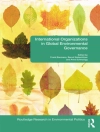The terrorist attacks of September 11, 2001 heightened awareness about the vulnerability to terrorist attack of all modes of transportation. Port security has emerged as a significant part of the overall debate on U.S. homeland security. The overarching issues for Congress are providing oversight on current port security programs and making or responding to proposals to improve port security. The U.S. maritime system consists of more than 300 sea and river ports with more than 3, 700 cargo and passenger terminals. However, a large fraction of maritime cargo is concentrated at a few major ports. Most ships calling at U.S. ports are foreign owned with foreign crews. Container ships have been the focus of much of the attention on seaport security because they are seen as vulnerable to terrorist infiltration. More than 9 million marine containers enter U.S. ports each year. While the Bureau of Customs and Border Protection (CBP) analyzes cargo and other information to target specific shipments for closer inspection, it physically inspects only a small fraction of the containers. The Coast Guard and CBP are the federal agencies with the strongest presence in seaports. In response to September 11, 2001, the Coast Guard created the largest port-security operation since World War II. The Coast Guard has advanced its 24- hour Notice of Arrival (NOA) for ships to a 96-hour NOA. The NOA allows Coast Guard officials to select high risk ships for boarding upon their arrival at the entrance to a harbor. CBP has also advanced the timing of cargo information it receives from ocean carriers. Through the Container Security Initiative (CSI) program, CBP inspectors pre-screen U.S.-bound marine containers at foreign ports of loading. The Customs Trade Partnership Against Terrorism (C-TPAT) offers importers expedited processing of their cargo if they comply with CBP measures for securing their entire supply chain. To raise port security standards, Congress passed the Maritime Transportation Security Act of 2002 (P.L. 107-295) in November 2002. The focus of debate in Congress has been about whether current efforts to improve port security are adequate in addressing the threat. While many agree that Coast Guard and CBP programs to address the threat are sound, they contend that these programs represent only a framework for building a maritime security regime, and that significant gaps in security still remain.
Jonathan P Vesky
Port and Maritime Security [PDF ebook]
Port and Maritime Security [PDF ebook]
¡Compre este libro electrónico y obtenga 1 más GRATIS!
Formato PDF ● Páginas 80 ● ISBN 9781634859332 ● Editor Jonathan P Vesky ● Editorial Nova Science Publishers ● Publicado 2016 ● Descargable 3 veces ● Divisa EUR ● ID 7227123 ● Protección de copia Adobe DRM
Requiere lector de ebook con capacidad DRM












